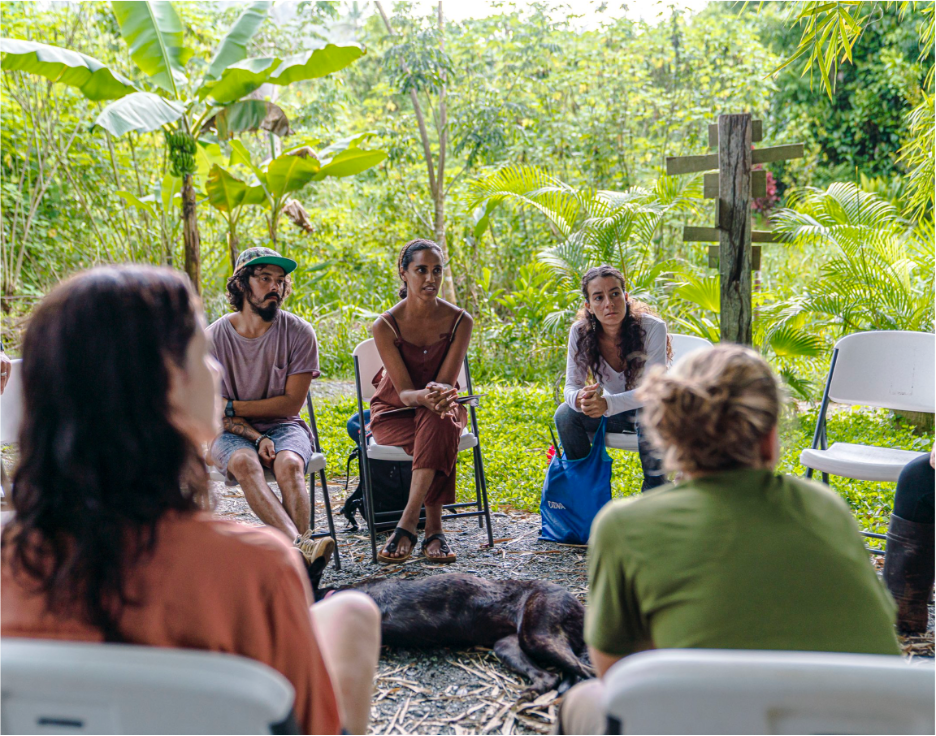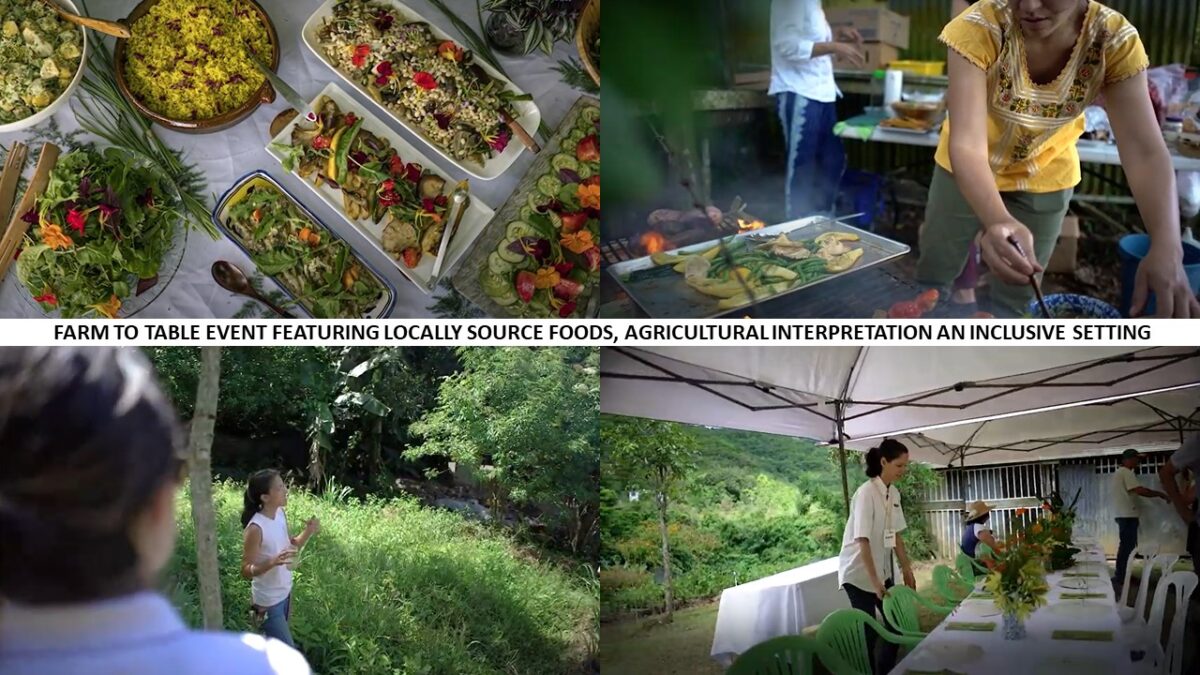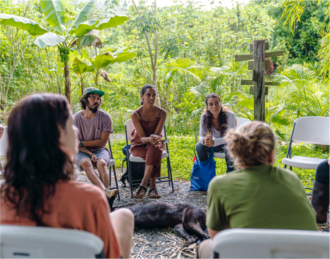SAN JUAN, Puerto Rico

The Visit Rico Professional Development Program SSARE grant project aims to enhance Puerto Rico's food security and economy by supporting small farms, which have declined in recent years. Between 2012 and 2018, the number of farms in Puerto Rico decreased with a significant reduction in farms under 10 acres. Led by Camille Collazo, the executive director, this initiative seeks to foster a more sustainable and resilient food system in Puerto Rico by addressing the challenges faced by small-scale agricultural operations. The program emphasizes agricultural interpretation to help farmers communicate their work and connect with consumers.
Collazo developed Visit Rico out of a desire to address the issues of the food system in Puerto Rico, particularly after her father's cancer diagnosis. Collazo emphasizes the importance of engaging people in farming and food consumption and the need for education and interpretation to effectively communicate the benefits of local food systems. Collazo highlighted the importance of mental health support for farmers and the need for a diverse and inclusive approach to agriculture. The conversation also touched on the impact of Hurricane Maria on the agricultural sector in Puerto Rico and the role of Visit Rico in supporting small farms.
Proud of the effectiveness of the educational content, the interactive nature of the sessions, and the positive feedback from participants, Collazo noted that the project's success was not only measured by quantitative metrics. There was qualitative feedback from participants, who expressed satisfaction with the knowledge gained and the ability to communicate it.
Collazo expressed immense gratitude for the support received in achieving a prestigious SSARE grant, which was the first ever received by their organization. She highlighted the importance of the grant in providing resources and opportunities for their team, including hiring the best professionals in their field. Collazo also mentioned that the grant was used to fund educational components, such as an ecological farm, and to support universities facing financial difficulties. She explained that they started with 40 participants, aiming for a diverse group including farmers, agronomists, and educators. The main goal was to promote sustainable agriculture and improve the quality of life.

A mental wellness discussion in the agricultural industry emphasized the importance of treating individuals with respect and dignity, regardless of their mental health status. Collazo advocates for viewing everyone as “normal,” rather than making assumptions that something is wrong with them simply because they may be struggling mentally. This approach fosters inclusivity and reduces stigma, which can help create a more supportive environment for all participants in the agricultural space. Visit Rico aims to make agriculture accessible to everyone, including people with disabilities by promoting diversity, equity, inclusion, and accessibility in the farming industry.
According to the final report, more than 90% of participants agree or totally agree that the educational material presented was pertinent and informative, and that the information presented was updated. Findings from the evaluation demonstrated that participants gained new knowledge in each of the topics presented in the professional development training program and a high probability of putting the knowledge into practice.
For more information on this project visit: https://projects.sare.org/project-reports/spdp22-14/
